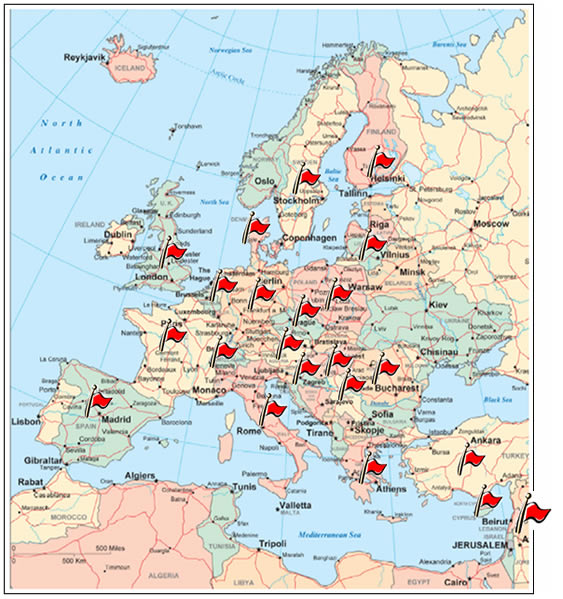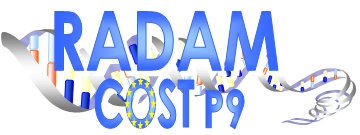INFORMACJE
SULFUR RADICAL CHEMISTRY OF BIOLOGICAL SIGNIFICANCE 01.09.2002 - 28.02.2006 Research Training Network (2002-2006) SULFUR RADICAL CHEMISTRY OF BIOLOGICAL SIGNIFICANCE: THE PROTECTIVE AND DAMAGING ROLES OF THIOL AND THIOETHER RADICALS within 5th Framework Programme (2002-2006) Contract Number: HPRN-CT-2002-00184 Acronym: SULFRAD Objectives At the molecular level, oxidative events now commonly called oxidative stress have been linked to numerous biological and pathological conditions. Many mechanistic questions have been raised, but there is a lack of basic chemical information. In particular, where competing pathways are considered, knowledge of the rates or chemical kinetics of putative reactions is usually required but is often lacking. This Network seeks to apply sophisticated radiation-chemical and related techniques to a problem central to free radical biology: the roles of sulfur free radicals in molecular mechanisms of stress. All three major cellular targets of oxidative stress will be studied: lipids, proteins and nucleic acids. The project aims to characterize sulfur radical chemistry of biological significance and to provide basic chemical information concerning sulfur radicals to help permit the biological processes to be understood at the molecular level. The project will identify the roles of thiols and thioethers in repairing free radical damage, and settle the controversy whether sulfur radicals produced in radical repair are themselves damaging. The key areas for investigation are: radical reactions involving sulfur in lipids, proteins, and nucleic acids; how sulfur radicals induce unnatural trans isomers of unsaturated membrane lipids; roles of thiols and thioethers in oxidative damage in peptides, especially those related to neurodegeneration; reactions of thiols with radicals derived from nucleic acids; and roles of oxygen in reactions of thiyl radicals. Partnerships The partnership includes members from France (Paris), Germany (Leipzig), Italy (Bologna), Poland (Poznan, Warsaw), Sweden (Stockholm) and the United Kingdom (Northwood). In addition two Advisors with strong European links are involved in the proposal. The organizational bases of the partners are in research institutes associated with university organizations, government-funded institutes, an independent medical charity, or university departments. A common link between the Partners is extensive experience in radiation-, free radical- and photo-chemistry research applied to biological problems, although the present project seeks to apply this specialized knowledge in a wider context. Each Partner heads a research group in their host institutes and together with the Advisers, the members of the Network have published well over 1000 papers on free radical chemistry and biology. Applications The results from this Network will lay down a framework of chemical mechanisms that are a prerequisite for new leads for possible therapeutic intervention; new potential diagnostic indicators of pathological conditions; and new insight into mechanisms for epidemiological differences.
Training Aspects The main goal in respect of training is to provide a group of young scientists with the theoretical and practical skills necessary not only to help advance the research field by addressing the specific questions, but also to provide a sound basis for application of quantitative free radical chemistry in the wider context. A crucial training role of the network will be the exchange of methodologies in the Project units. Close interaction between Partners is necessary in order to obtain a complete overview of sulfur radical reactivity and to understand the role of thiols in biology. The training programme will provide specialist skills appropriate to immediate challenges, and also lay down a more general framework of skills that will ensure young scientists can fulfill future leadership roles. The two approaches include training by fulfilling the scientific programme under personal supervision (including exchanges between institutes), and training by attendance at special courses, including a common education programme for all young research scientists employed. The latter will involve teaching in scientific method, publishing, language development, organizing work groups, problems of organizational structures and management roles, grant submissions, etc. To achieve these aims we propose two workshops, in addition to an exchange programme involving at least one other group for short periods. Problem-solving exercises involving groups of 3-4 young scientists will be arranged. One open international conference in the field of the network will be organized, facilitating wider contributions from international experts and also the wider dissemination of the results of the Network. • GRANTY |



